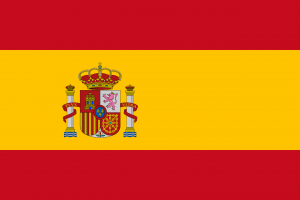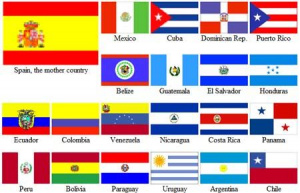Language/Spanish/Vocabulary/Days-of-the-Week-and-Months-of-the-Year
 Հայերէն
Հայերէն Български език
Български език 官话
官话 官話
官話 Hrvatski jezik
Hrvatski jezik Český jazyk
Český jazyk Nederlands
Nederlands English
English Suomen kieli
Suomen kieli Français
Français Deutsch
Deutsch עברית
עברית हिन्दी
हिन्दी Magyar
Magyar Bahasa Indonesia
Bahasa Indonesia فارسی
فارسی Italiano
Italiano 日本語
日本語 Қазақ тілі
Қазақ тілі 한국어
한국어 Lietuvių kalba
Lietuvių kalba Νέα Ελληνικά
Νέα Ελληνικά Şimali Azərbaycanlılar
Şimali Azərbaycanlılar Język polski
Język polski Português
Português Limba Română
Limba Română Русский язык
Русский язык Српски
Српски العربية القياسية
العربية القياسية Svenska
Svenska Wikang Tagalog
Wikang Tagalog தமிழ்
தமிழ் ภาษาไทย
ภาษาไทย Türkçe
Türkçe Українська мова
Українська мова Urdu
Urdu Tiếng Việt
Tiếng Việt
| ◀️ Numbers and Counting — Previous Lesson | Next Lesson — Common Foods ▶️ |
Welcome to another exciting lesson in our "Complete 0 to A1 Spanish Course"! Today, we're diving into a fundamental aspect of the Spanish language: the Days of the Week and Months of the Year. Understanding these is crucial not only for everyday conversations but also for planning events, making appointments, and talking about schedules.
In this lesson, you'll learn:
- The names and order of the days of the week in Spanish.
- The names and order of the months of the year in Spanish.
- Useful phrases to help you practice using these terms in context.
So, let’s get started! Don’t forget to keep your notebook handy to jot down notes and practice!
Days of the Week[edit | edit source]
The days of the week in Spanish are quite straightforward, but they also have their own rhythm and flow. Let’s break them down!
The Seven Days[edit | edit source]
Here’s a simple list of the days of the week:
| Spanish | Pronunciation | English |
|---|---|---|
| lunes | /ˈlune̞s/ | Monday |
| martes | /ˈmaɾtes/ | Tuesday |
| miércoles | /ˈmjeɾkoles/ | Wednesday |
| jueves | /ˈxweβes/ | Thursday |
| viernes | /ˈbjeɾnes/ | Friday |
| sábado | /ˈsaβaðo/ | Saturday |
| domingo | /doˈmiŋɡo/ | Sunday |
Pronunciation Tips:
- The stress in most of these words falls on the first syllable. Practice saying them out loud!
- The letter "j" is pronounced like the English "h," and the "v" in "viernes" sounds more like a "b."
Using Days in Context[edit | edit source]
In Spanish, the days of the week are not capitalized unless they are at the beginning of a sentence. Here are a few examples to illustrate:
- ¿Qué día es hoy? (What day is today?)
- Hoy es lunes. (Today is Monday.)
- Vamos a salir el viernes. (We are going out on Friday.)
Feel free to create your own sentences using the days of the week!
Months of the Year[edit | edit source]
Now that we’ve got the days down, let’s tackle the months of the year. This section will help you understand how to express dates, which is incredibly useful in daily conversations.
The Twelve Months[edit | edit source]
Here’s a breakdown of the months:
| Spanish | Pronunciation | English |
|---|---|---|
| enero | /eˈneɾo/ | January |
| febrero | /feˈβɾeɾo/ | February |
| marzo | /ˈmaɾθo/ | March |
| abril | /aˈβɾil/ | April |
| mayo | /ˈmaʝo/ | May |
| junio | /ˈxunjo/ | June |
| julio | /ˈxuljo/ | July |
| agosto | /aˈɣos to/ | August |
| septiembre | /sepˈtiem bɾe/ | September |
| octubre | /okˈtuɾe/ | October |
| noviembre | /nioˈβɾe/ | November |
| diciembre | /diˈθjem bɾe/ | December |
Pronunciation Tips:
- Pay attention to the nasal sounds in months like "junio" (June) and "julio" (July).
- "Marzo" has a soft "z," pronounced like the English "s."
Using Months in Context[edit | edit source]
Just like the days, months are not capitalized in Spanish unless they start a sentence. Here are some examples:
- ¿Cuál es tu mes favorito? (What is your favorite month?)
- Mi cumpleaños es en agosto. (My birthday is in August.)
- El verano comienza en junio. (Summer begins in June.)
Practice Exercises[edit | edit source]
Now that you’ve learned the days of the week and the months of the year, it's time to practice!
== Exercise 1: Fill in the Blanks
Complete the sentences with the correct day of the week or month.
1. Hoy es ______ (day).
2. Mi cumpleaños es en ______ (month).
3. El próximo ______ (day) vamos al cine.
4. ______ (month) es el primer mes del año.
== Solutions:
1. (Accept any day of the week)
2. (Accept any month)
3. (Accept any day of the week)
4. enero
Remember, practice makes perfect!
== Exercise 2: Matching
Match the Spanish months with their English translations.
| Spanish | English |
|-------------|-------------|
| enero | January |
| marzo | March |
| octubre | October |
| diciembre | December |
== Solutions:
1. enero - January
2. marzo - March
3. octubre - October
4. diciembre - December
Conclusion[edit | edit source]
Bravo! You've taken a significant step in mastering basic vocabulary related to days and months in Spanish. Remember to incorporate this vocabulary into your daily conversations and practice regularly.
Feel free to revisit this lesson whenever you need a refresher, and keep building on your Spanish skills. ¡Hasta luego!
Videos[edit | edit source]
Spanish Calendar Song - Learn days and months in Spanish with ...[edit | edit source]
Days of the Week in Spanish | Lesson 4 - YouTube[edit | edit source]
Spanish Lesson 11 - DAYS OF THE WEEK in Spanish Vocabulary ...[edit | edit source]
Sources[edit | edit source]
- Days of the week, months and seasons in Spanish - Blablalang
- Days and Months in Spanish
- The Days of the Week, Months and Seasons in Spanish
Other Lessons[edit | edit source]
- Breakfast
- Days of the Week
- Panamanian Slang
- Body parts
- Business
- Parts of a flower
- How to say Good Bye?
- Colors
- Bathroom
- Conversación básica en un restaurante
| ◀️ Numbers and Counting — Previous Lesson | Next Lesson — Common Foods ▶️ |


